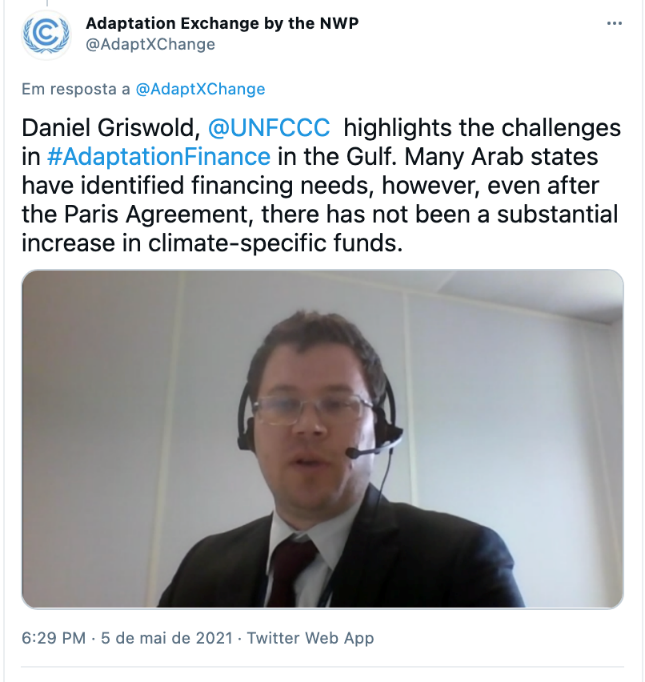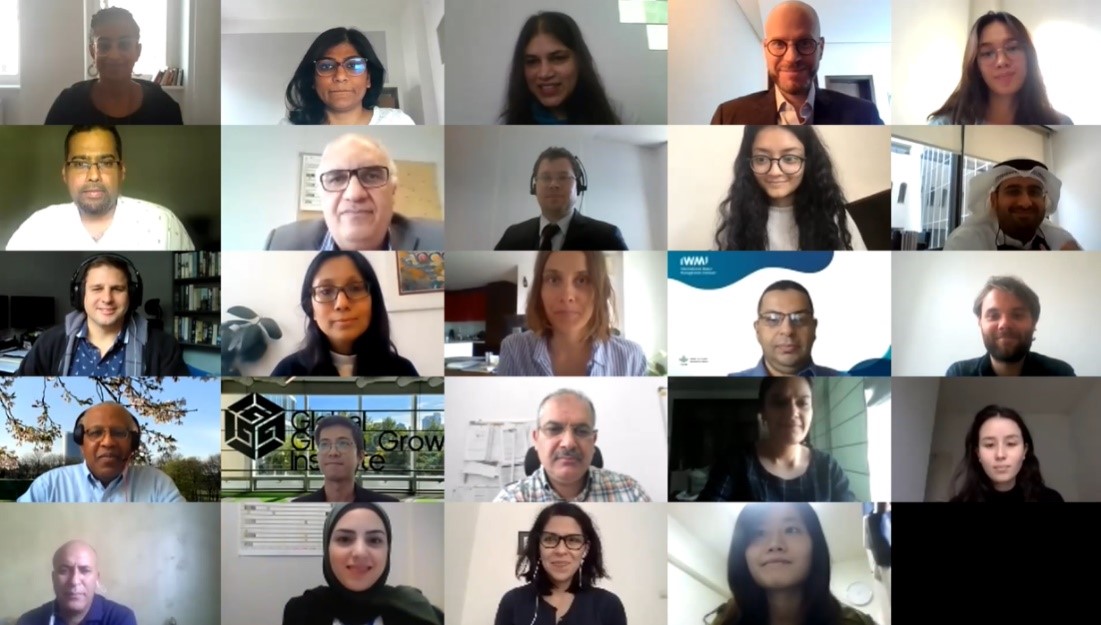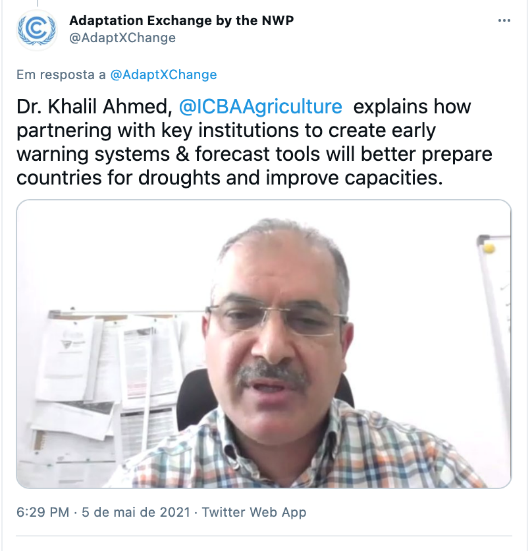UN Climate Change News, 21 May 2021 - Closing knowledge gaps on the effects of climate change across the North African and West Asia/Gulf Cooperation Council (GCC) subregions was the focus of a recent meeting which showcased initiatives that will form part of an action plan for closing such knowledge gaps in the region.
Understanding the effects of climate change in the local and regional context and identifying specific regional knowledge gaps are important first steps in scaling up adaptation actions - a key pillar of the Paris Agreement. The meeting held on 5 May was the third of its kind involving partners of the Lima Adaptation Knowledge Initiative (LAKI).
'Adaptation as we know is a journey, building on knowledge and cultivating synergy with the Sustainable Development Goals (SDGs) and other global frameworks. The initiatives outlined in the action plan will go a long way towards providing concrete anchors for advancing adaptation efforts in countries in this region,' said Paul Desanker, Manager, Adaptation Division, UNFCCC.
Defining joint adaptation actions
A collection of projects led by organizations partnering with the UNFCCC were presented at the meeting, including: Scaling up mangrove carbon sequestration studies from the United Arab Emirates to Oman to support adaptation; development of a digital system accessible through mobile phones to transfer key knowledge to farmers to shield them from climate shocks in Jordan; frameworks and systems for data collection and monitoring of climate impacts; and technological advances in drought management and smart agriculture.
Funding opportunities to support the implementation of actions
Participants at the meeting shared their views on opportunities and challenges for cross-collaboration and received guidance from climate finance experts on funding schemes to support the action plan. The coordinator for the Global Adaptation Network at the United Nations Environment Programme (UNEP) Elizabeth Bernhardt, explained that innovation is a key priority for securing funding opportunities such as the Global Ecosystem-based Adaptation Fund and the Adaptation Fund Climate Innovation Accelerator (AFCIA).
'If there's something that has proven benefits for communities and proven ability to be scaled up and scaled out to other locations, it would be a top priority. Is it truly innovative? Does it demonstrate how a barrier could be overcome in a way that other countries can emulate?' she said.

Next steps
This was the last of a series of three virtual meetings, as a part of the second phase of the LAKI for North Africa and GCC subregions. In the previous phase, a total of 28 priority adaptation knowledge gaps were identified across the two subregions, which included lack of data, lack of access to data, lack of actionable knowledge, and lack of methods to process knowledge into an actionable form.

Activities in the plan will now be implemented, and progress for each action will be showcased at events throughout the year, including the UN Climate Change Conference COP26 in Glasgow in November and the MENA Regional Climate Week in March 2022.







